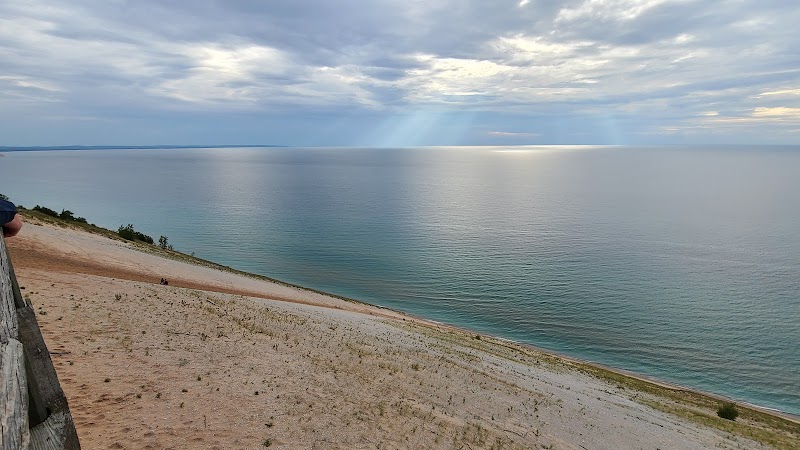
Explore Hands-On Outdoor Adventures at Lavender Hill Farm in Boyne City, Michigan
Lavender Hill Farm in Boyne City, Michigan, combines engaging outdoor activities with hands-on farming experiences. Enjoy a 3-mile hike through lavender fields and forested terrains, paired with educational workshops that add a practical edge to your adventure.
Adventure Tips
Wear Sturdy Footwear
Trails mix dirt, roots, and rocky terrain—choose shoes with good grip to navigate safely.
Hydration is Key
Bring at least 1 liter of water; some trail sections offer little shade, especially in summer.
Visit Early or Late
Start your hike early morning or late afternoon to avoid midday heat and enjoy the cooling breeze.
Pack Insect Repellent
Be prepared for mosquitoes and bees, particularly during bloom season when pollinators are active.
Explore Hands-On Outdoor Adventures at Lavender Hill Farm in Boyne City, Michigan
Lavender Hill Farm, just outside Boyne City, Michigan, invites outdoor enthusiasts into a landscape alive with natural vigor and rustic charm. This working farm stretches over gentle hills and pockets of dense forest, where lavender bushes dare the wind to carry their fragrance far and wide. Wandering here isn’t just a stroll—it’s a practical adventure shaped by weathered trails, open meadows, and farmland paths that encourage exploration and discovery.
The main hiking circuit loops about 3 miles with an elevation gain close to 300 feet. The terrain varies from soft dirt and crushed stone paths to sections with roots and rocky outcrops, demanding steady footing but rewarding with blue-sky views and lavender fields waving defiantly under the open sky. As you navigate, the farm's animals may cross your path or watch curiously from fences, reinforcing the sense of purposeful coexistence with nature.
To make the most of your adventure, arrive in sturdy hiking shoes with good traction; the farming land can be uneven, especially after rain. Water is essential, especially in summer, as shade thins on some parts of the trail. Early morning or late afternoon hikes are ideal to avoid midday heat and capture the lavender’s strong scent in cooler air.
Besides hiking, Lavender Hill offers hands-on workshops during peak season—from lavender harvesting to DIY essential oil distilling, blending physical activity with education. The farm also hosts seasonal events where you can engage with local agriculture firsthand, providing an immersive experience that goes beyond casual observation.
Plan your visit between late June and early August for full bloom, when the farm’s colors deepen, and bees work energetically among the flowers. Off-season visits reveal a quieter, more introspective landscape where rustling trees and scattered snow invite slower, more deliberate walks.
This is a setting where the natural environment asserts itself: the wind pushes firmly through open fields, the earth reveals its uneven character, and the lavender stands resilient. Hiking here is an exercise in listening and responding—adjusting stride, catching your breath, and engaging with a landscape that’s fiercely itself, not softened for easy travel.
For actionable preparation: pack insect repellent during summer, bring layered clothing for shifting temperatures, and consider a small backpack to carry hydration, snacks, and any supplies from the farm’s onsite shop. This adventure is as much about understanding and respecting the land as it is about physical challenge and sensory delight. Lavender Hill Farm is a practical, rewarding outdoor destination that delivers both hands-on farming connection and invigorating trail time, suitable for casual hikers and seasoned adventurers eager to engage with Michigan’s rural outdoor heritage.
Nearby Trips
All Adventures
Boat Charters
Water Activities
Adventures near Boyne City, Michigan
Discover the unique and memorable adventures that make Boyne City, Michigan special.
Frequently Asked Questions
Are dogs allowed on the Lavender Hill Farm trails?
Yes, dogs are welcome but must be kept on a leash at all times. This helps protect farm animals and preserves the natural environment.
Is there parking available near the farm for hikers?
Lavender Hill Farm offers limited on-site parking. It’s recommended to arrive early, especially on weekends or during events.
Can I purchase lavender products at the farm?
Absolutely. The farm has an onsite shop featuring fresh lavender bundles, essential oils, and handcrafted items available during open hours.
What wildlife might I see during my hike?
Expect to see pollinators like bees and butterflies, as well as small mammals like rabbits and the occasional deer. Birds such as Eastern Bluebirds and red-winged blackbirds are common.
Are workshops included with admission or do they require separate registration?
Workshops require separate registration and fees, as they provide hands-on instruction and supplies. Check the farm’s calendar for schedules.
Can I hike the trails in winter?
Yes, winter hiking is possible but brings icy and snowy conditions. Proper footwear and awareness of weather advisories are recommended.
Recommended Gear
Hiking Shoes with Traction
Ensures stability on uneven dirt, roots, and rocky surfaces along the trail.
Water Bottle or Hydration Pack
Crucial for staying hydrated on open, sunny sections of the hike, especially in warmer months.
Insect Repellent
Protects against mosquitoes and bees during bloom and warm seasons.
Layered Clothing
Allows easy adjustment to fluctuating temperatures common in spring and fall.
Local Insights
Hidden Gems
- "The small meadow overlook west of the main trail offers a quiet spot with panoramic views of the surrounding Boyne Valley."
- "Behind the barn, a less-traveled path leads to a small wildflower patch ideal for seasonal observation."
Wildlife
- "Native bees play a vital role in lavender pollination here and can be observed actively during bloom season."
- "Look for the occasional red fox, which prowls quietly near wooded borders in the early morning."
History
"Lavender Hill Farm has been an agricultural fixture since the early 2000s, transitioning from conventional crops to organic lavender farming. It exemplifies sustainable practices in Northern Michigan’s small farm movement."
